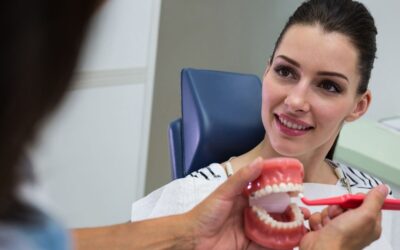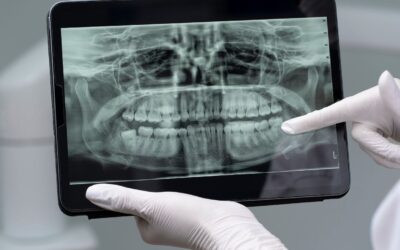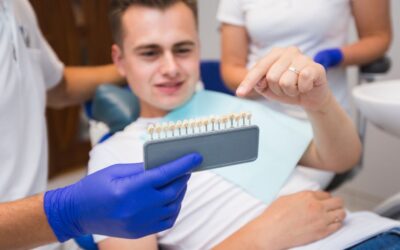After wisdom tooth extraction, patients often face a variety of complications as they recover. One of the more frustrating issues that many people experience is inadvertently biting the inside of their cheeks. While this may seem like a minor problem, it can cause discomfort, slow down healing, and even lead to further oral issues if left unchecked.
If you’re wondering why you keep biting your cheek after a wisdom tooth extraction and how to stop this from happening, you’re not alone. The healing process following such a procedure involves a delicate balance of tissue regeneration, jaw alignment, and careful aftercare. This article explores the common causes of cheek biting post-extraction, offers practical advice on preventing it, and discusses when it’s time to seek further medical help.
By understanding the underlying factors that contribute to cheek biting after wisdom tooth extraction, you can take steps to minimize discomfort and promote a quicker recovery. So, let’s dive in and explore the topic in detail.
What Happens During Wisdom Tooth Extraction That Could Lead to Cheek Biting?
The wisdom tooth extraction process is usually carried out under local anesthesia, sedation, or general anesthesia, depending on the complexity of the case. The removal of the wisdom teeth, particularly the lower ones, may lead to temporary discomfort or alterations in the way your teeth align, which can make cheek biting more likely.
Key Details of the Procedure:
The extraction involves the surgical removal of one or more wisdom teeth, typically located at the back of the mouth. During the procedure, the gums are cut, and the bone around the tooth may be removed to facilitate extraction. As a result, the surrounding tissues in the mouth—including the inside of the cheek—can become inflamed or irritated.
Effect on Your Bite:
After the extraction, the mouth and jaw may take time to adjust to the new state. Swelling and inflammation can alter how your teeth meet, shifting your bite temporarily. This change can make it easier for your teeth to accidentally contact the inside of your cheek when chewing, especially if you aren’t fully aware of the changes caused by the procedure.
Temporary Misalignment:
The anesthesia used during the procedure can also impact your ability to control your jaw movements immediately after the surgery. This numbness can last for several hours, increasing the risk of accidental cheek biting until the numbness wears off. Additionally, some individuals may experience a slight misalignment in their bite during the initial healing phase due to swelling and the soft tissue recovery process.
Common Causes of Biting Your Cheek After Wisdom Tooth Extraction
Cheek biting after wisdom tooth extraction is common and generally temporary. However, it’s important to understand the key factors contributing to this problem so you can minimize its impact.
Swelling and Pain Altering the Bite:
One of the primary reasons for cheek biting is the swelling that occurs after wisdom tooth extraction. Swelling can cause changes in how your teeth meet. When the swelling is significant, your teeth may not align as they usually would, which increases the likelihood of accidentally biting the inner cheek. In some cases, the swelling can last for several days to weeks, depending on how your body responds to the surgery.
The Effect of Inflammation on Surrounding Tissues:
Inflammation in the gums, cheeks, or jaw can make the soft tissues in your mouth more sensitive. This sensitivity makes it easier to bite your cheek unintentionally. Inflammation can also make the cheeks feel puffy and swollen, which may cause them to protrude slightly into the path of your bite.
Misalignment of Teeth Post-Extraction:
After the removal of wisdom teeth, there can be slight shifts in the alignment of your teeth as they heal. These shifts are often temporary and will stabilize once the swelling goes down and the tissues heal. However, during this transitional period, your teeth may not meet in the same way they did before, making it easier to accidentally bite your cheek, especially when chewing or talking.
How to Prevent Biting Your Cheek After Wisdom Tooth Extraction
While cheek biting is a common occurrence after wisdom tooth extraction, there are several measures you can take to prevent it and make your recovery smoother.
Effective Prevention Methods:
-
Bite Guards: Using a soft bite guard or mouthguard can protect the inside of your cheeks from accidental biting. These devices can act as a cushion between your teeth and cheeks, reducing the impact of any accidental bites. Your dentist may be able to provide a custom-fit guard.
-
Dietary Changes: A softer diet is highly recommended during the healing period. Foods like mashed potatoes, soup, and smoothies are ideal because they don’t require much chewing. Avoiding hard, crunchy, or sticky foods will reduce the risk of damaging the soft tissues inside your mouth.
-
Gentle Chewing: Be mindful of how you chew. Avoid chewing on the side where your wisdom teeth were extracted, as this can aggravate swelling and increase the likelihood of biting your cheek.
-
Oral Hygiene: Keeping the inside of your mouth clean is crucial, especially in the areas around the extraction sites. Be gentle while brushing to avoid irritating the tender tissues inside your mouth. Using an antiseptic mouthwash can also help reduce inflammation and promote healing.
-
Ice Packs: Applying ice packs to the outside of your face can help reduce swelling. This will help your bite return to its normal alignment more quickly and prevent the inside of your cheek from coming into contact with your teeth.
When Should You Contact Your Dentist About Cheek Biting?
While cheek biting can be a normal part of the healing process, it’s important to know when it’s time to contact your dentist for help. In some cases, persistent cheek biting could indicate a more serious issue with your recovery, such as an infection or severe misalignment.
Signs to Watch For:
-
Pain that doesn’t subside: If you experience ongoing or increasing pain in the area of your cheek bite, it may indicate that something is wrong. This could be a sign of infection or other complications.
-
Open Sores: If the inside of your cheek develops sores or ulcers from repeated biting, it’s essential to consult your dentist. Sores that don’t heal or become infected can slow down your recovery and may require additional treatment.
-
Difficulty in Bite Alignment: If your bite feels misaligned and doesn’t improve after a few days, it might be worth checking with your dentist to rule out complications.
-
Excessive Swelling: If swelling doesn’t go down after a week or worsens, it could be a sign of an infection or other issue that needs immediate attention.
By staying in contact with your dentist during your recovery, you can ensure that any problems, including cheek biting, are addressed before they become more serious.
FAQs
Q1: Is it normal to bite my cheek after wisdom tooth extraction?
Yes, it’s quite common to accidentally bite your cheek after wisdom tooth extraction due to swelling, misalignment, or the effects of anesthesia. This is usually temporary and improves as you heal.
Q2: How long does cheek biting last after wisdom tooth extraction?
The duration of cheek biting varies from person to person, but it typically lasts for a few days to a week after the extraction. Once the swelling subsides, the problem should go away.
Q3: Can I prevent cheek biting after wisdom tooth extraction?
Yes, there are several ways to prevent cheek biting, such as using a bite guard, sticking to soft foods, and maintaining good oral hygiene during your recovery period.
Q4: What should I do if I keep biting my cheek after wisdom tooth extraction?
If the cheek biting continues or becomes painful, it’s best to contact your dentist. They may recommend a custom mouthguard or check for issues with your healing process.
Q5: How can I speed up the healing process to avoid cheek biting?
To speed up the healing process, be sure to follow all aftercare instructions provided by your dentist. Use ice packs, eat soft foods, and avoid chewing on the side where the extraction took place. Keeping your mouth clean is also crucial for reducing inflammation.
Conclusion
Cheek biting after wisdom tooth extraction is a common issue that many patients face during the recovery process. While it can be frustrating and uncomfortable, it is usually temporary and can be managed with the right strategies. By understanding the causes behind this problem and taking proactive steps to protect your cheeks during healing, you can reduce the chances of ongoing discomfort and speed up the recovery process.
If cheek biting persists or leads to significant issues, don’t hesitate to consult your dentist to ensure there are no underlying complications. With proper care, your mouth will heal, and the problem will resolve itself over time.



